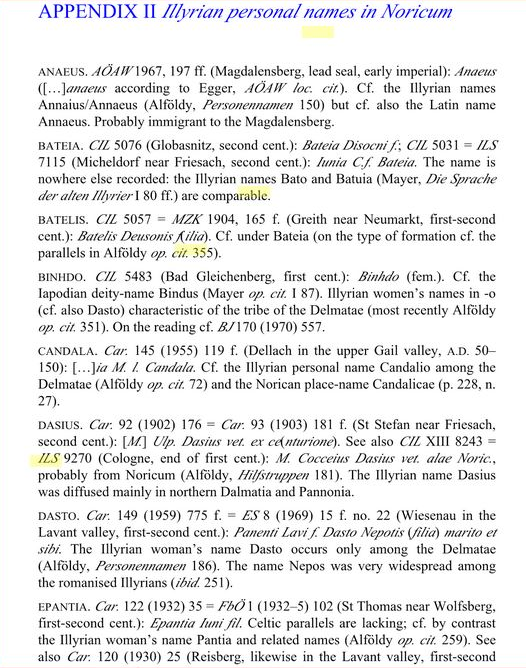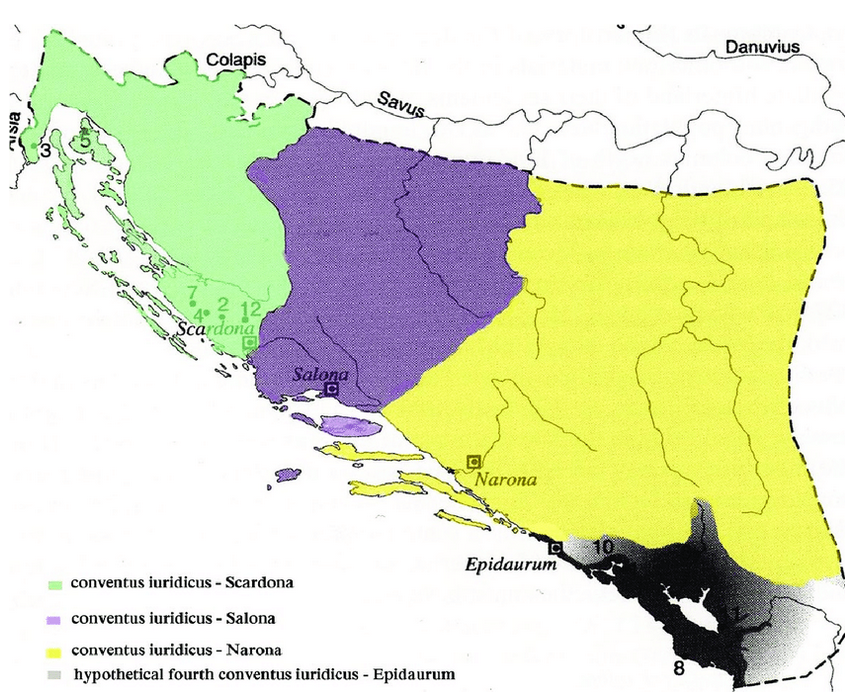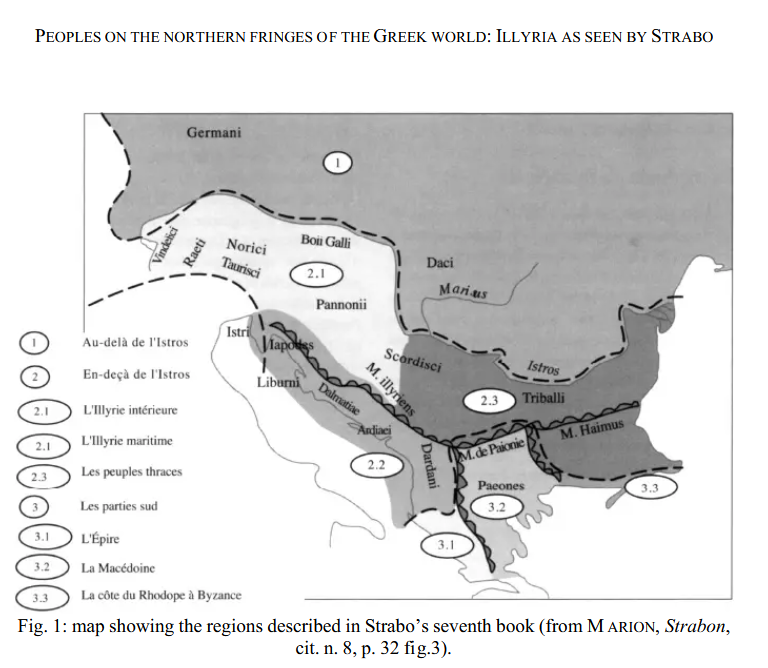I simply have to admire the confidence with which you assert your claims. What self-appointed expertise you wield. You can stop using bold font and repetitiveness in your text, I have no problems understanding your argument.
Ligurians and Etruscans have nothing to do with Illyria, but I can see why you would mention them to try and make Illyria seem more cosmopolitan. The limiting factor to tribal and regional names was geographical and political. The realm of a strongman's rule. You can post all the maps you want... polities are categorical but language distribution is spectral. You really think on either side of a boundary they spoke a different language? Moreover, these borders were constantly shifting due to power struggles and conquest, but language was relatively stable.
The names of tribes and nations in antiquity derived from a multitude of sources, sometimes their rulers, sometimes geographical features like rivers, sometimes social traits. It's a complex nexus that can work in both directions. I've already showed that it's highly likely the Dalmatians were named after the word for sheep, because they were pastoralists. Tribes split, merged and migrated, the idea that this necessitated a language change each time is absurd. There are plenty of historical records of people encountering foreigners from far-flung lands who nevertheless "spoke the same tongue." They understood the difference between a very similar tongue and a very different one. Historians like Jordanes and Pliny had a racial model for language and new that a conglomerate of tribes could share the same general language.
Illyrians were absolutely primitive and had no written language. Their gravestones (stećci) had pretty low-grade artwork with child-like depictions lacking bodily proportion. You would think they might carve the names of the deceased or some other wording if they had written language, but they didn't. Roman accounts of Illyrians described their general appearance as haggard, with unkempt hair and poor hygiene. They were also said to be highly superstitious; it was forbidden to look at the moon for fear of instant death, while during eclipses people would leap to their death because they thought it was the end of the world. Sounds pretty primitive to me. The West Balkans was sparsely populated, mountainous, underdeveloped in terms of agriculture... why you think it would have been a hotbed of linguistic diversity or a magnet for various cultures to settle is beyond me.
As for the terms Scandinavian, Iberian and British, by your logic it makes no sense to talk about the historical language of these regions. And yet we know that in Denmark and Southern Sweden they would have spoken virtually the same language back then, Old Norse. We know that pre-Anglosaxon Britain spoke a Celtic language. You really think the Welsh, Scots and Bretons in Northern France would not have spoken a mutually intelligible language back then? Large geographical area...trivial distinction.
I can see you have made pretty much the exact same posts elsewhere on this forum under the account name "Sile." Not sure why you have more than one account, or why you are so inclined to be pedantic on a narrow definition of language, at the expense of a common-sense survey of language distribution in antiquity. Talk about throwing the baby out with the bathwater. 1 tribe = 1 language? Ok pal, you said it.




